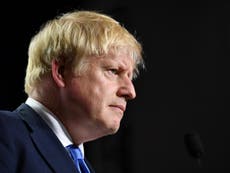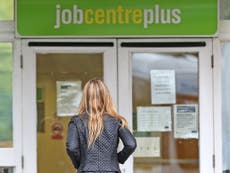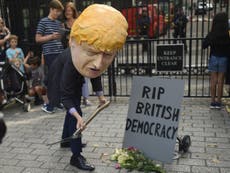This is the ‘humble address’ that could end Boris Johnson’s Brexit coup
The mechanism may be archaic, but it would be the perfect way for parliament to reassert its sovereignty

Hilary Mantel's words can apply equally to decisions: "Those who are made can be unmade."
There is no legal remedy in regard to the act of elder abuse yesterday, when the Queen in Council was obliged by precedent to agree to the extended prorogation of parliament for fraudulent purposes, thereby deliberately placing an almost insuperable time obstacle in the path of backbench legislation to prevent a no-deal crashout from the European Union.
But there is a political and constitutional one, under which the House of Commons can, in a three-hour emergency debate, force the revocation of yesterday’s Order in Council by means of a Humble Address.
The Humble Address
Not rediscovered until recently as a substantive assertion of parliamentary sovereignty (as against its traditional ceremonial role), the Humble Address is a mechanism under which a House of Parliament can make its desires and opinions known to the Crown. Its use has also been mooted by Conservative MP Dominic Grieve.
Addresses have, in the words of Erskine May (the authoritative guide to parliamentary procedure), historically comprised “every matter of foreign or domestic policy”. The mechanism has been used in the recent past with dramatic effect, first to compel the release of economic assessments relating to Brexit and then to force the publication of the attorney-general’s full legal advice on the “Irish backstop”. In the latter case the speaker accepted the proposition that for the government to refuse to comply with a Humble Address would be a contempt of parliament, at which point the government caved in.
Rescinding the Prorogation Order
So, on the basis of Erskine May, it would be in order for the House of Commons to approve by motion a Humble Address to the Queen to rescind the Prorogation Order. This would not drag the Queen into politics; she would merely be a conduit to procure the government to convene a meeting of the Privy Council to reverse its previous decision.
If the Commons approved the Humble Address and the government ignored it, the Commons could pass a further motion declaring the government in general, and the prime minister in particular, to be in contempt of parliament. At that point it would have to hand even more exotic remedies, including declaring a vacancy in the prime minister’s Uxbridge constituency and/or confining him in the Tower of London.
In the public interest, I provide a draft form of Humble Address:
"That a humble address be presented to Her Majesty, that she will be graciously pleased to procure that her government forthwith convenes a meeting of Her Majesty’s Privy Council and submits thereto a draft Order to rescind the Order made by it on 28 August 2019 for the prorogation of parliament."
Philip Goldenberg was a long-standing adviser to the Liberal Democrats and the principal author of the Coalition’s Machinery of Government Agreement.





Join our commenting forum
Join thought-provoking conversations, follow other Independent readers and see their replies